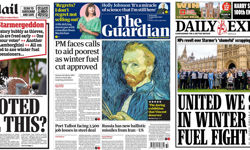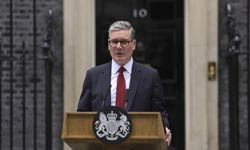As reported by the Newspaper Society: NS president Adrian Jeakings, Archant chief executive, told a Culture, Media and Sport Select Committee hearing on Tuesday that “unconstrained, uncommercial expenditure by the BBC” at a local level could “wipe out the local press” if it was pursued to the limit.
Mr Jeakings said: “It seems with the latest review the Trust is encouraging the management of the BBC to become more local so we’re girding our loins as it were, for the same battle all over again.” He added that the industry was "slightly troubled by the relationship with the Trust and the BBC; are they there to cheer them on or are they there to constrain them?”
Mr Jeakings was giving evidence at the ‘Future of the BBC’ hearing alongside KM Group chairman Geraldine Allinson and Southern Daily Echo editor in chief and Society of Editors president Ian Murray
The publishers spoke of the threat to the local press if the BBC was allowed to develop its taxpayer-funded local services and called for greater collaboration between the BBC and local press at a local level.
In response to a question on local TV, Mr Jeakings said the imminent launch on Freeview of Archant’s local TV station Mustard was going “very well” but added that: “The one difficult element I think is the way that the content sale agreement to the BBC has been structured which is frankly uncommercial and dictated by the BBC. They are obliged to buy content from us but it’s not at a commercial rate and it’s something that tails away over three years.”
Talking about potential commercial relationships such as the BBC commissioning content from local papers as the biggest providers of local news, Mr Jeakings denied that such an arrangement would amount to state funding of the industry: “The state would not be determining what content was created or indeed controlling what we said.
“They would be paying for what is supposed to be an independent broadcast medium to source content of relevance to its audience. It would be far more attractive to do it that way than any form of state subsidy for what we used to call the regional press and indeed we would be against that.
“We all work with organisations like the Press Association who create content and then distribute it to other media organisations, apart from the BBC probably, I don’t see that the relationship need be any different to that; it’s an arms length commercial relationship and there are market rates for these things.”
Ms Allinson added: “I’m sure there would be a way for them to provide local services in a way where actually we can co-exist. We can do the commercial side and they can also provide local services but in a way where we’re supportive of each other rather than actually in direct competition and fighting.”
Speaking about the industry Mr Murray said: “We have the largest newsrooms around and, contrary to some myths, we do attend lots of council meetings, we’re in lots of courts, my paper never misses an inquest, we consider that to be so vitally important, we’re there at parish councils, we’re scrutinising the NHS, we’re doing all of this and I feel certain that’s going on at a lot of other papers as well.”
“In a commercial environment of course we must fight our own battles but if that opposition, those threats, are unfair, are being funded by the licence fee, as we move into those areas, that’s what concerns us the most.”
Talking about the influence of local press, Steve Rotheram MP, said: “We have the Liverpool Echo, as you know, and everyone reads it. Whilst people might not necessarily buy it now in the numbers that they used to, what’s in the Liverpool Echo is actually the thing that’s the topic of conversation in all the pubs and the clubs.
“That’s where people gather their news from but it's different now because people will tweet it out, ‘have you seen the Echo?’ rather than people buying it, so its influence is still absolutely huge.”










